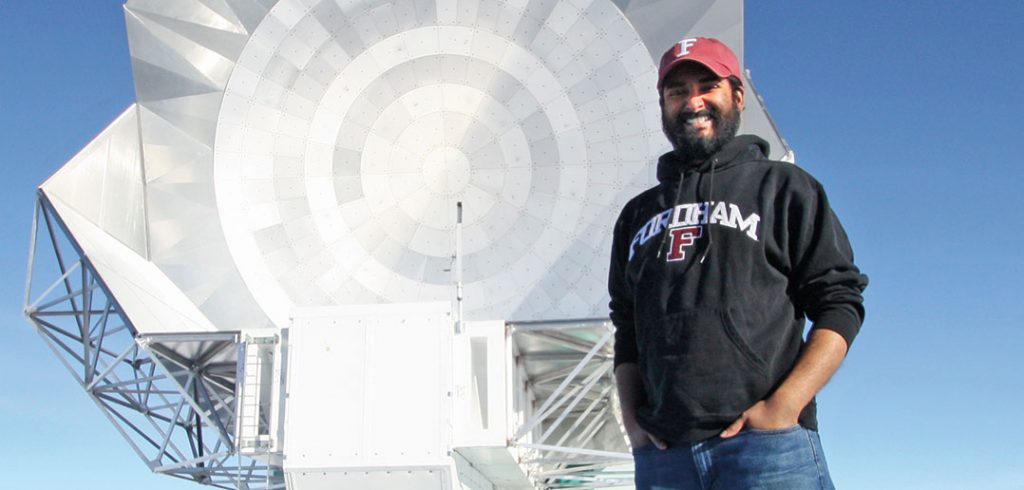A physicist treks to the South Pole to map light left over from the Big Bang
Joshua Sobrin is well acquainted with frontiers, and not just because of the time he’s spent at the South Pole. As a cosmologist, or someone who studies the origins of the universe, he’s part of a scientific field that has undergone its own “Big Bang” of sudden expansion since 1964.
That’s when scientists discovered the Big Bang’s leftover radiation, providing evidence for what was once considered a “crazy theory” and kicking off a new era of research projects in cosmology, Sobrin says.
As a doctoral student in experimental cosmology at the University of Chicago, he’s working on one of those projects, helping to upgrade a radio telescope at the South Pole so it can study the heavens with greater acuity.
The South Pole’s dry, untroubled atmosphere is one of the best on Earth for studying the cosmic microwave background, the term for omnipresent radiation left over from the Big Bang 14 billion years ago, Sobrin says. This background once seemed uniform, but better technology has teased out disturbances that indicate what was happening when the universe was just 380,000 years old.

This “baby picture of the universe” could tell us more about the sorts of matter and energy that make up the universe, or answer puzzles about its expansion after the Big Bang, he says.
Sobrin spent 10 weeks at the South Pole in 2016 and plans to return in December. He helped design and integrate the telescope’s new receiver, which contains optics and detectors cooled near absolute zero for maximum sensitivity.
Sobrin double-majored in physics and religious studies at Fordham and earned a master’s degree in the philosophical foundations of physics from Columbia University. He would eventually like to become a physics professor who can also engage with students’ theological and philosophical questions.
While theology and science take entirely different approaches, he says, “you’re sort of as close as you can get to brushing up to theological questions when you start talking about the universe’s beginnings.”

